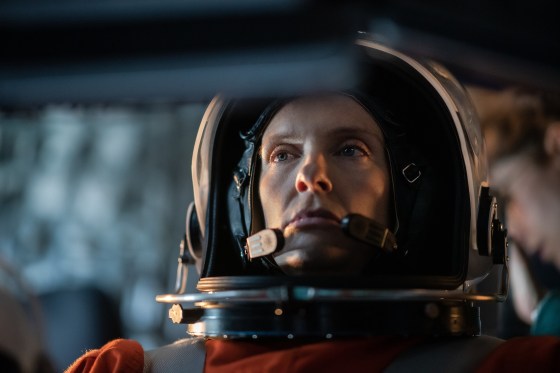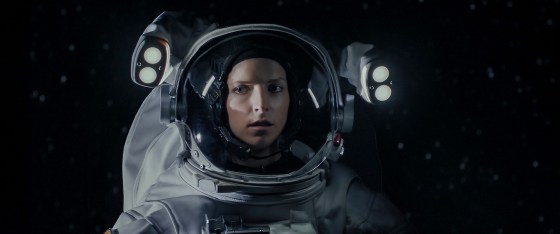When it comes to movies set in space, the line between meditative and boring is a slender one. Unless the plot involves slimy alien Gigercritters bursting out of chest cavities, movie astronauts seem to spend a lot of time opening and closing one airlock door after another, while occasionally gazing out the window and marveling at the glory of creation. Far from Earth and the humans they left behind there, movie astronauts are often depicted as being largely alone with their thoughts, not the most dynamic thing to dramatize. Still, a quiet space-travel move isn’t necessarily a bad one. The point is to make you feel as if you’ve been lifted off the planet. The rules are going to be different; all bets are off.
That’s a roundabout way of saying that Joe Penna’s Stowaway—set aboard a ship that was designed for three people and, it turns out, must accommodate four—is a little boring. But it has a mournful, searching quality, similar to what some of the more soulful space movies—like Alfonso Cuaron’s Gravity or Brian De Palma’s Mission to Mars—tease out. What’s it like to be isolated among the stars with one or two or three fellow humans who perhaps don’t see things your way? And is space really as cool and elegant as the movies—including this one—always make it look, the cosmic equivalent of Italian furniture from the 1970s? Stowaway pulls plenty of pages from the generic space-movie handbook, but it still builds a mood of dread and contemplative ennui, finding its resolution in a final, somber shot.

The plot is basically drawn from a game of Lifeboat. Toni Collette is Marina, the dutiful, focused captain of a ship headed to Mars. Her crew consists of two bright-eyed members, Zoe (Anna Kendrick), a doctor, and David (Daniel Dae Kim), a biologist. Daniel is a Yale man; Zoe’s all Harvard. She’s allocated part of her precious weight allotment to bring along not one but two Harvard mugs; she uses one to serve coffee to David as a joke. Let it not be said that serious astronauts don’t know how to have fun.
Read more reviews by Stephanie Zacharek
Then Marina notices blood dripping from a panel housing the ship’s life-support panel. There’s a man in there! It’s not immediately clear whether he crawled in and, like a little mouse, fell asleep, snoozing all through takeoff before passing out, or sneaked in deviously so he could be an astronaut too. But no matter what, the newcomer, Michael (Shamier Anderson), presents a problem, and Marina is displeased. It turns out that his presence has damaged the life-support apparatus, and there is now enough oxygen on the ship for only three people, not four. One will have to go. How Marina and the crew handle that decision teases out a number of predictable moral questions, but also flirts with some mild romantic ones—particularly the fact that Zoe might be developing a crush on the new guy.

Personally, I’m not sure I’d want to travel to Mars with Anna Kendrick. Doesn’t she seem a little high-strung for space? But her performance here has a quiet, simmering thoughtfulness, as if Zoe were a person who has always felt just a little out of step on Earth, able to find space scarily freeing. Collette has little to do beyond look at first annoyed, and then resigned, and then anguished by her responsibilities—but Collette, who can do anything, ultimately makes us feel the weight of the latter. The story, written by Penna and Ryan Morrison, has its tense moments, including the requisite spacewalk. Two characters seen as tiny space-suited figures carry out a perilous task, moving an important something from here to there and back again. When we see their faces behind their helmets, they seem vulnerable, exposed, states of being that aren’t the opposite of bravery but the force it must push against. They’re just one step away from oblivion; space doesn’t care about their feelings. And in these moments, as well as during the pensive mission that one character undertakes in the finale, Stowaway isn’t boring at all. The infinity of space is terrifying, but also strangely cozy—as if, without borders, we’re at last free to be our truest selves.

0 Comments